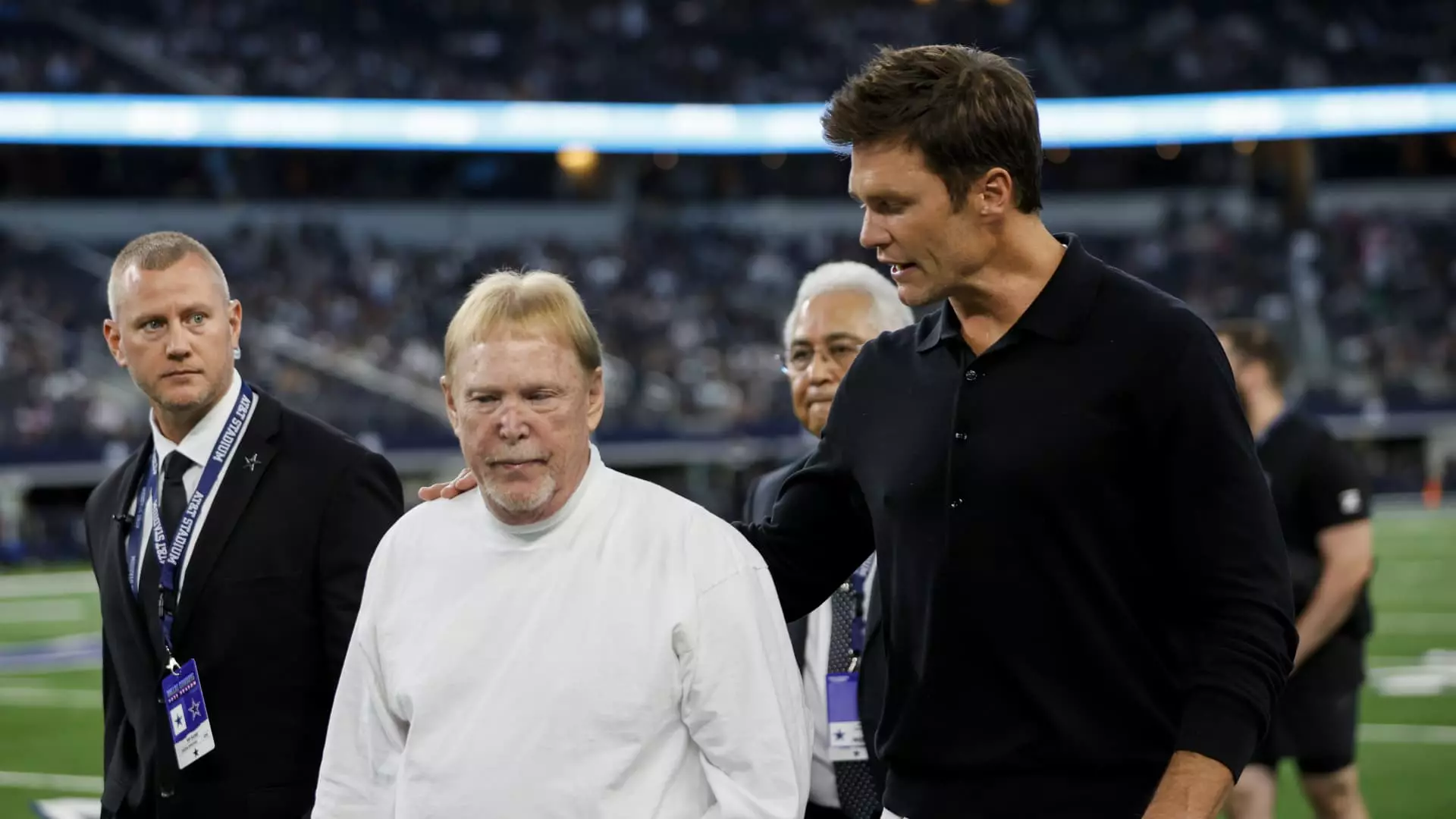In a landmark decision that signals a shift in NFL ownership dynamics, Tom Brady, the legendary quarterback with a history of unprecedented success on the field, has been approved as a minority owner of the Las Vegas Raiders. This partnership, which also includes businessman Tom Wagner, signifies not just a financial investment but a potential transformation in how former athletes engage with the operational side of professional sports franchises.
Reportedly, Brady and Wagner have invested approximately $220 million for about a 10% stake in the Raiders, which places the franchise’s valuation at an eye-watering $3.5 billion. This substantial figure underscores the escalating worth of NFL teams, particularly following the Raiders’ move from Oakland to Las Vegas, which has substantially boosted their revenue streams. However, the deal is accentuated by the imposition of a “flip tax,” which necessitates a further payment that directly benefits the other NFL team owners, illustrating the networked nature of league relationships and the collective financial interests that guide such investments.
Interestingly, while Brady’s position could suggest a pathway for influential participation in the franchise’s operations, he is bound by constraints typical of minority ownership. For instance, he will not have voting rights regarding team operations or direct involvement in day-to-day management. The valuation discrepancy is notable too; Brady’s purchase price reflects a discount of over 50%—a margin that defies the usual standards set for limited partners, raising questions about the league’s valuation methodology and perceptions of risk in ownership stakes.
In a statement expressing his enthusiasm, Brady conveyed a commitment to honor the Raiders’ storied history while focusing on enhancing fan experiences and striving for on-field success. His transition from a player celebrated for clutch performances to a figure in the ownership suite invites speculation about how his iconic competitive spirit and familiarity with the NFL landscape will influence the franchise. Brady’s deep-seated understanding of what it takes to win could, in theory, guide the Raiders in their quest for championships.
However, the expectation he places on himself may also raise the stakes among fans and critics alike. Brady’s past has set a high bar; his statements may generate heightened scrutiny regarding the football decisions made by the Raiders’ current management. As anyone involved in sports knows, ownership is a multifaceted challenge where results are often measured in wins and losses, and Brady’s legendary status heightens the anticipation surrounding his new role.
The Raiders’ Current State and Future Prospects
The Las Vegas Raiders have undergone a notable transition since their relocation and now boast impressive revenue figures, generating $780 million in 2023, with an EBITDA of $115 million. Despite Allegiant Stadium being one of the smallest venues in the NFL, its high ticket prices—averaging $169—exemplify a strategy that leverages exclusivity and demand. Additionally, the stadium’s role as a host for numerous non-NFL events has diversified the organization’s income streams, indicating a forward-thinking approach to maximizing profitability.
Brady’s involvement could further capitalize on this momentum. His brand recognition and marketability may attract additional partners and sponsors eager to associate with his legacy. Moreover, his existing stake in the WNBA’s Las Vegas Aces demonstrates a growing trend among athletes of parlaying their sporting success into ownership opportunities, potentially creating cross-promotional avenues that could benefit both franchises.
A New Era for Athlete Ownership
As Brady joins the ranks of former players who have transitioned into roles of ownership, his involvement represents a significant moment in NFL history. He is only the third former player to take on such a position, indicating a trend towards player-led ownership models that can reshape traditional hierarchies within the league. This paradigm shift may inspire a new generation of athletes to consider ownership as a viable career path once their playing days are over.
Tom Brady’s ascent as a minority owner of the Raiders not only highlights his business acumen but also presents a unique opportunity for innovative leadership within the franchise. As he navigates the complex landscape of NFL ownership, fans and analysts alike will be keenly observing how this new chapter unfolds—both for Brady personally and for the legacy of the Raiders.

